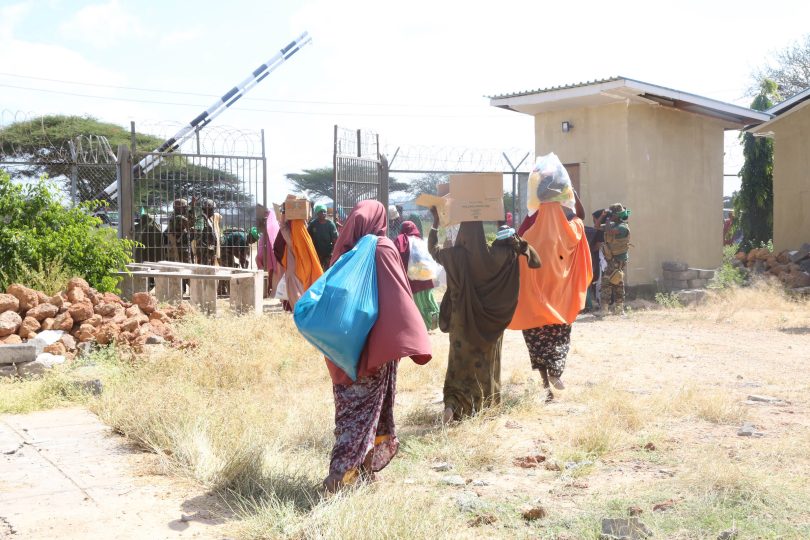Several border posts lining Nigeria’s borders indicate relics of bureaucracy. Aside from the proliferation of functions that inherently delay trade and enhance corruption, these border posts also suffer from poor infrastructural developments. One such border is the Nigeria-Benin border area.
During a visit to the Nigeria-Benin frontier on May 7, 2025, Omar Touray, ECOWAS president, decried the existence of multiple customs and immigration posts for the same border corridor. According to him, duplication of checkpoints delays free trade and creates opportunities for corruption, making traders lose trust in border patrol agencies.
At the Nigeria-Benin border, most of the border posts bear different designations but have similar functions, forcing merchants to undergo repeated checks and customs documentation, hence delaying the movement and delivery of goods.
A 2024 United Nations Economic Commission for Africa report revealed that trade merchants in Nigeria and Benin spend as much as eight weeks or more at the Seme-Krake border on goods passage that typically takes less than six hours in other African countries’ borders like Botswana and Namibia.
Traders in Botswana and Namibia spend five hours, and 50 minutes on average for both customs processing and goods passage on the Trans-Kalahari border, indicating a swift progression of goods across the two countries.
In recent times, both Namibia and Botswana have ardently invested in effective border mechanisms. As a member of the World Trade Organisation, (WTO) Namibia substantially invests in its border infrastructure to meet global standards, aligning with the WTO’s Trade Facilitation Agreement and hastening border clearance, boosting trade.
In March 2025, Namibia launched a Coordinated Border Management (CBM) National Strategy, an initiative that seeks to improve efficiency in trade facilitation and reduce non-tariff barriers at border posts. The CBM launch comes days after Namibia’s Ministry of Industrialisation and Trade introduced the National Trade Information Portal, a digital infrastructure designed to simplify merchants’ access to trade-related information, stimulating international trade.
On its own part, Botswana computerized its border posts in 2024 to improve cross-border efficiency and foster international trade.
In contrast, Nigeria, one of Africa’s technologically advanced countries, still grapples with bureaucratic delays and complex old infrastructure at its borderline with Benin, Africa’s fourth-largest cotton exporter. Despite Nigeria’s advantage in technology, which could be better harnessed to improve trade efficiency, particularly along its land borders, the country faces shortcomings in deploying and maintaining needed infrastructure that could aid transnational exchange.
While on the visit, Touray decried the despicable state of machinery that was meant to facilitate free exchange. He stated that the Nigeria-Benin border is one of the busiest and most strategic borders in West Africa yet is faced with expensive facilities, scanners, lighting systems, and bridges that are simply not working despite heavy disbursement of funds for infrastructure.
At the Nigeria-Benin frontier, the ineffectiveness of facilities despite funds allotment depicts mismanagement. It shows how proliferated checkpoints absorb funds intended for the maintenance of existing infrastructure such as scanners and lightning systems or for acquiring advanced equipment.
In addition to bureaucratic hurdles and costly but ineffective equipment, traders at the Nigeria-Benin border are also subjected to corrupt practices that thrive in replicated security posts at the Nigeria-Benin border. According to a 2024 ResearchGate report by Ngozi Nzomah, corruption at the Nigeria-Benin frontier predominantly involves traders, crossers, and smugglers, with approximately 23 percent of cases related to immigration.
At established Seme-Krake checkpoints, border officers collectively and, sometimes, individually charge traders and crossers undocumented fees tantamount to bribes at different inspection points. In other cases, immigration officers aid the smuggling of goods across borders upon receipt of bribes, the study revealed.
These abnormalities at the Nigeria-Benin frontier, obscured in inefficient machinery and corrupt practices, are counterproductive to free trade in the West African region. The replication of customs checkpoints and immigration posts also reflects bureaucratic traditions, incurring high costs of operation and contradicting ECOWAS’s free movement mandate.
Both Nigeria and Benin are trade hubs renowned for their prowess in the imports and exports of goods. However, delays and corruption at border points could frustrate and repel traders and travellers, diminishing trading activities.
To improve border efficiency, the Nigerian and Beninese governments need to enhance bureaucratic systems, merge checkpoints with overlapping functions and scrap non-relevant posts. This would reduce the cost of operation, and enable proper allocation and usage of funds. It would also eliminate unsolicited delays and enhance exchange transparency, lessening tendencies of corruption.
State governments in Nigeria and Benin should also diversify funds and finance appropriate mechanisms that enhance the flexible exchange of goods and services across borders. Funds that used to serve expensive costs of operation and maintenance of outdated unused facilities like scanners should be diverted for the acquisition of digital facilities.
Digital payment systems and a centralised portal like those obtainable in Botswana and Namibia could facilitate customs processes and goods passage at the Seme-Krake border. Rather than manually documenting goods, thus causing delays, traders would have familiarised themselves with relevant information online and completed the required steps, leaving them to go through only immigration and customs checks at checkpoints.
The Nigeria-Benin border area plays a crucial role in facilitating free trade across the West African region. However, systemic problems and bad conduct among border security operatives counteract the free and easy passage of goods and services across the border, negating the principles of free exchange.
To improve flexible exchange across their borders, the Nigerian and Beninese governments should take critical actions. They should merge checkpoints with overlapping functions, reducing delays and boosting transparency. Both countries should also prioritize investing in advanced technology. The efficiency of cross-border exchange is crucial to the overall success of free trade.
By: Favour Adeboye, a development journalist and a Free Trade fellow at Ominira Initiative.


Leave a Comment